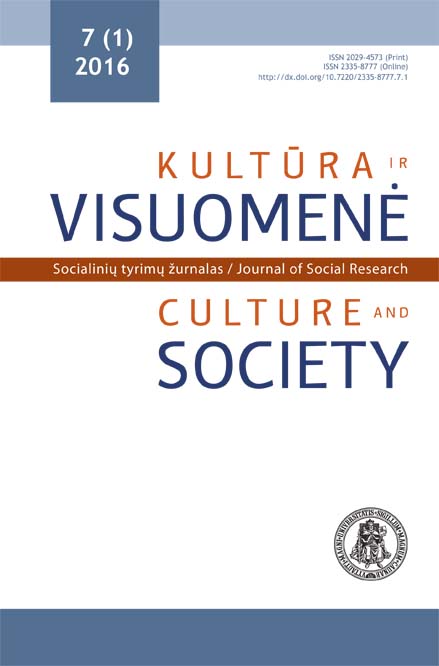Mero institucija Lietuvoje: gyventojų lūkesčių tyrimas
Mayorship in Lithuania: Public Opinion Research
Author(s): Arvydas MikalauskasSubject(s): Politics / Political Sciences, Social Sciences, Governance, Public Administration, Public Law, Government/Political systems, Electoral systems, Social psychology and group interaction, Evaluation research, Sociology of Politics
Published by: Vytauto Didžiojo Universitetas
Keywords: Mayors; Local self-government; Roles and styles of local political leaders; Direct election of local mayors; Public trust;
Summary/Abstract: In academic literature, local political leadership is conceptualized in a twofold manner: by distinguishing leadership roles and leadership styles. The latter approach is characterized by more complex evaluations. Based on the aforementioned conceptualization of leadership and the empirical material (data of a poll conducted by the public opinion research company “Baltijos Tyrimai” in February and March of 2016), the article seeks to identify the roles of mayors as Lithuanian local self-government leaders that the public finds the most acceptable and the leadership styles it finds the most attractive. The research results reveal that the public associates the mayor’s functions more with administrative/managerial rather than political roles; it is also assumed that the mayor will represent the public interest the most effectively when he gives higher priority to the establishment and improvement of internal (i. e. accumulating municipal internal resources) rather than external networks. The range of the leadership styles of the local political leaders, in accordance with the distinguished dichotomous values, makes it possible to also identify other expectations of the public with regard to the institution of the mayor. However, it has to be highlighted that leadership roles and styles are usually adjusted by the characteristics of the institutional structure that have an effect on the mayor’s individual or collective activity and on leadership guidelines.
Journal: Kultūra ir visuomenė: socialinių tyrimų žurnalas
- Issue Year: VII/2016
- Issue No: 1
- Page Range: 135-158
- Page Count: 24
- Language: Lithuanian

